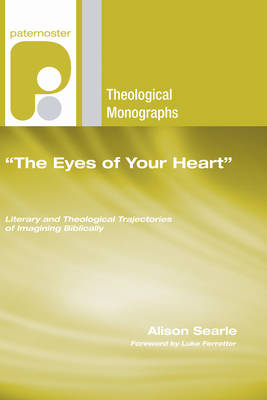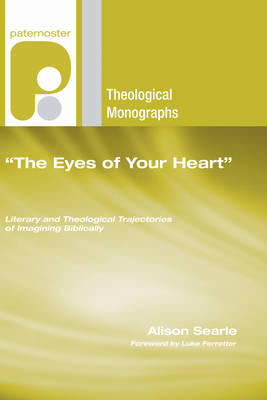
- Retrait gratuit dans votre magasin Club
- 7.000.000 titres dans notre catalogue
- Payer en toute sécurité
- Toujours un magasin près de chez vous
- Retrait gratuit dans votre magasin Club
- 7.000.0000 titres dans notre catalogue
- Payer en toute sécurité
- Toujours un magasin près de chez vous
47,45 €
+ 94 points
Description
This book develops a theory of imagining biblically that explores the contributions scripture can make to a new way of thinking about creativity, reading, interpretation, and criticism. The methodology employed in order to demonstrate this thesis consists of a theoretical exploration of current theological understandings of the "imagination" and their implications within the fields of literary studies. The biblical texts locates the function generally defined as "imagination" in the heart ("the eyes of your heart," Ephesians 1:18). This book assesses what the biblical text as a literary and religious document contributes to the concept of "imagination." Due to the eclectic nature of the individual books that comprise the scriptural canon, the text is considered primarily in terms of its overarching metanarrative, language, genres, and theological propositions. Tracing the various trajectories the biblical text opens up and the ways in which they intersect with and modify post-Romantic assumptions about the imagination reconfigures traditional definitions of this concept. A Calvinistic, evangelical hermeneutic is deployed to establish a theoretical concept of what it means to "imagine biblically." This is further substantiated by a comparative study of authors ranging from the seventeenth to the twentieth centuries (John Bunyan, Samuel Rutherford, Jane Austen, Charlotte Bronte, and C. S. Lewis). Each author's chapter incorporates a close reading of a key text which concretely examines various trajectories of imagining biblically, including creativity, faith, morals, narrative, Romanticism, and eschatology. The conclusion returns to the biblical text and draws these elements together, with a definition of the concept of imagining biblically and its implications for literary studies.
Spécifications
Parties prenantes
- Auteur(s) :
- Editeur:
Contenu
- Nombre de pages :
- 250
- Langue:
- Anglais
- Collection :
Caractéristiques
- EAN:
- 9781606086025
- Date de parution :
- 01-04-09
- Format:
- Livre broché
- Format numérique:
- Trade paperback (VS)
- Dimensions :
- 150 mm x 226 mm
- Poids :
- 385 g

Les avis
Nous publions uniquement les avis qui respectent les conditions requises. Consultez nos conditions pour les avis.






